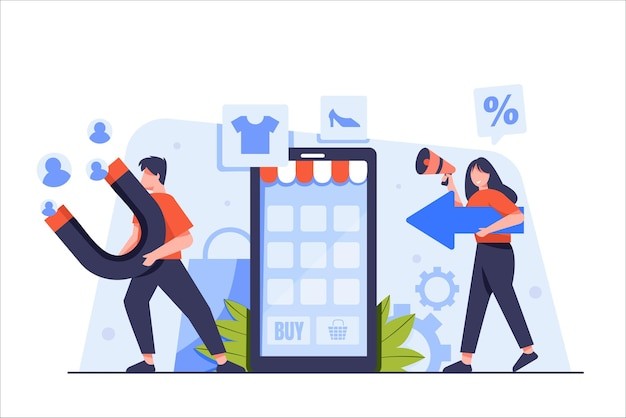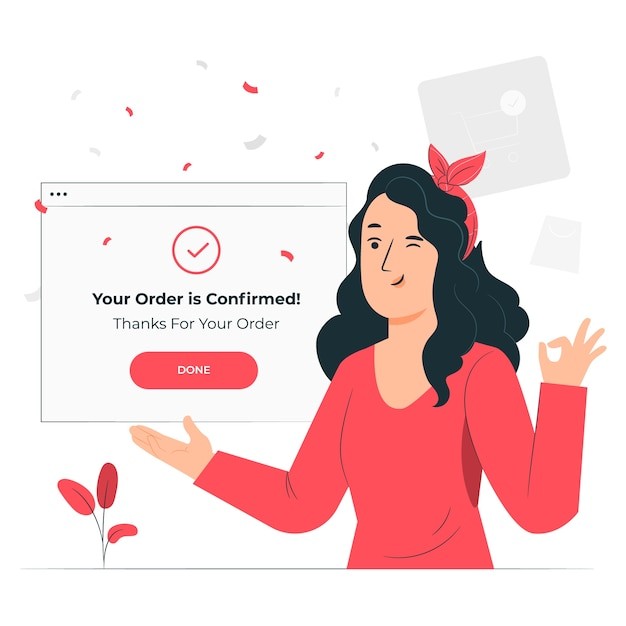It should be no secret that ecommerce businesses need to be persuasive to succeed. After all, you’re trying to convince people to part with their hard-earned cash in exchange for your products or services. But what exactly is persuasion in business, and how can you use it to your advantage?

Psychology of persuasion is the science of how we can influence the behavior of others through communication. It involves understanding how our own emotions and biases affect our ability to persuade, as well as how to use language and nonverbal cues to influence the emotions and biases of others. While the study of persuasion dates back to the ancient Greeks, it has taken on new importance in the digital age, as businesses increasingly rely on online communication to reach customers.
Understanding the psychology of persuasion in business can help ecommerce businesses design more effective marketing campaigns, website experiences, and sales strategies. By understanding how persuasion works, businesses can create more persuasive content and learn how to better target their messages. Additionally, ecom businesses can use psychological principles of persuasion to build rapport with customers and create a stronger sense of brand loyalty. Ultimately, understanding persuasion in business can help businesses boost sales, grow their customer base, and achieve their desired objectives.
How to use persuasive techniques in your ecommerce business
Have you ever wondered why you’re more likely to buy something after seeing it advertised on social media or TV, or why certain products always manage to sell out? It’s all thanks to the power of persuasion in business. Businesses have long been using persuasive techniques to influence customer behavior, and the rise of ecommerce has only made this easier. By understanding the psychology of persuasion, businesses can use it to their advantage and make sure that their products are always in high demand.

The most important thing to understand about persuasion is that it doesn’t happen overnight. It’s a gradual process that happens over time, and businesses need to be patient if they want to see results. However, there are some key techniques that businesses can use to speed up the process. For example, using social proof is a great way to persuade customers that everyone is buying your product, so they should too. Similarly, offering a discount is an excellent way to get customers to take the plunge and buy something they may be hesitant about. Ultimately, by understanding how persuasion works, businesses can make sure that their products are always in high demand.
Examples of persuasive techniques that can be used on an ecommerce website
As anyone who has ever been persuaded to make a purchase knows, the power of persuasion is hard to resist. And businesses have long been aware of the potential of using psychology to influence consumer behavior. In recent years, however, the use of persuasive techniques has become increasingly sophisticated, thanks in part to the growth of ecommerce. By understanding the psychological principles that underpin persuasive techniques, businesses can design more effective online experiences that encourage customers to buy.

Social Proof
One of the most well-known examples of persuasive techniques in action is the use of social proof. This is when we are more likely to do something if we see others doing it too. So, for instance, if an ecommerce website features customer reviews and testimonials, this can be an effective way of persuading visitors to make a purchase.
Authority Bias
Another common technique is known as authority bias, which is when we are more likely to trust and follow the recommendations of someone we perceive as an expert. Online businesses can use this principle to their advantage by featuring endorsements from well-known names or by using expert opinions to promote their products.
Scarcity
Then there is the use of scarcity. Scarcity is closely related to urgency, but it’s more about creating a sense that there’s a limited supply of your product or service. This encourages people to buy now before it’s too late. You can use scarcity tactics like saying there are only a few items left in stock, or by running exclusive VIP sales for select customers only.
Reciprocity
This technique exploits the fact that humans are predisposed to reciprocate acts of kindness. For example, if an ecommerce business offers a discount or free shipping on first orders, customers will feel compelled to return the favor by making a purchase.
The benefits of using persuasive techniques on an ecommerce website
Most people are familiar with the notion of persuasion, but few stop to think about how it works or why it’s so effective. The science of persuasion is a burgeoning field of psychological research that has uncovered some surprising insights into what makes people say “yes.” By understanding how people think and what motivates them, you can design an ecommerce store that is more likely to encourage users to take the actions you want them to take. For example, you can use persuasion to:

- Make it easier for people to find what they’re looking for on your store
- Encourage people to spend more time on your store
- Convince people to buy your products or services
- Get people to sign up for your email list
- Increase the likelihood that people will recommend your store to others
In addition to increasing sales, the use of persuasive techniques can also help ecommerce businesses build trust and credibility with their customers. By using persuasive techniques such as providing customer testimonials or displaying reviews from trusted sources, businesses can show potential customers that they are credible and trustworthy. This can help build long-term relationships with customers and increase the customer retention rate.
How to measure the success of persuasive techniques on an ecommerce website
Any business that wants to be successful needs to understand the psychology of persuasion. This is especially true for ecommerce businesses, which rely on convincing customers to make a purchase. But how can you tell if your persuasive techniques are actually working? Here are a few indicators to watch for:

- Increased website traffic: This could mean that people are intrigued by your persuasive tactics and are coming to your site to check it out.
- Higher conversion rates: If more people are completing a purchase after arriving on your site, that’s a good sign that your persuasion techniques are working.
- Positive customer reviews: If customers are leaving positive reviews or feedback, it means they’re happy with their purchase and were convinced by your persuasive tactics.
By keeping an eye on these indicators, you can start to get a sense of whether or not your persuasion techniques are having the desired effect. And if they’re not, you can adjust accordingly until you find the right mix of tactics that work for your business.
Wrap-Up
If you want to increase the success of your ecommerce business, then it is well worth taking the time to learn about psychological persuasion in business and how you can use it to your advantage by persuading potential customers to take action. When done correctly, persuasive techniques can be extremely effective in driving sales and conversion rates. Understanding how persuasion works is the first step in creating a persuasive ecommerce website.

